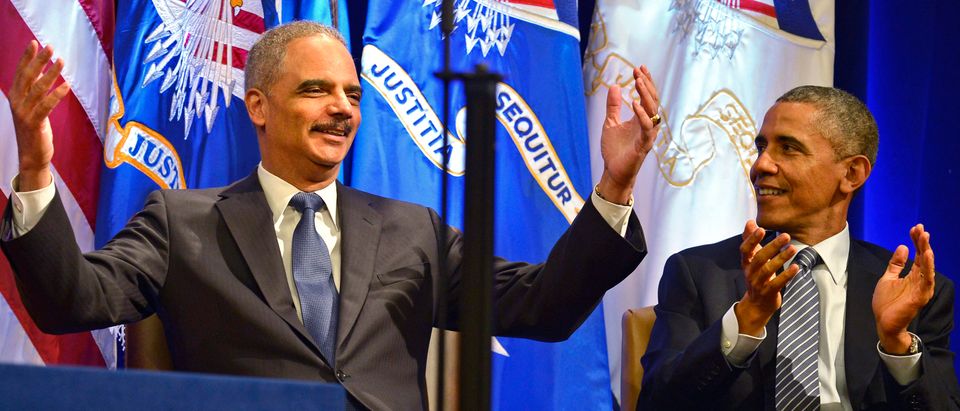Former President Barack Obama worried that there was no precedent to dismiss the case against former National Security Adviser Michael Flynn — but his own Attorney General Eric Holder applied it in 2009.
Impeachment witness and George Washington University constitutional law professor Jonathan Turley pointed out the disconnect in a series of tweets Saturday, beginning by noting that Obama had misrepresented the charges against Flynn. (RELATED: EXCLUSIVE: ‘They Did It To Me First’ — Rod Blagojevich Knew Exactly What The FBI Did To Flynn)
President Obama is being quoted on Flynn, saying “There is no precedent that anybody can find for someone who has been charged with perjury just getting off scot-free.” It is a curious statement. First and foremost, Flynn was not charged with perjury… https://t.co/fWlSFWkp8S
— Jonathan Turley (@JonathanTurley) May 9, 2020
Flynn was not actually charged with “perjury,” as Turley pointed out, but with lying to the FBI. And recently-released documents suggest that those charges only came about as the result of a trap laid by the FBI in order to gain leverage over Flynn.
But even so, the precedent denied by Obama does exist. Turley explained its use in a column posted on his own page Saturday.
There is ample precedent for this motion even though, as I noted in the column calling for this action, such dismissals are rare. There is a specific rule created for this purpose. Federal Rule of Criminal Procedure 48(a) states the government may dismiss an indictment, information or complaint “with leave of the court.” Moreover, such dismissals are tied to other rules mandating such action when there is evidence of prosecutorial misconduct or fundamental questions about the underlying case from the view of the prosecutors.
What makes Obama’s denial of this precedent so curious is the fact that his own former Attorney General Eric Holder used it 11 years ago, citing prosecutorial misconduct and failure to provide exculpatory evidence in the case against former Republican Alaska Sen. Ted Stevens. Stevens’ conviction was ultimately dismissed in April 2009 by Judge Emmet Sullivan — the same judge who presided over Flynn’s case.
The Justice Department has dismissed cases in the past including the Stevens case.That was requested by President Obama’s own Attorney General Eric Holder for the same reason: misconduct by prosecutors. It was done before the same judge, Judge Sullivan. How is that for precedent?
— Jonathan Turley (@JonathanTurley) May 9, 2020
Holder released a statement on Stevens’ case prior to Sullivan’s decision:
After careful review, I have concluded that certain information should have been provided to the defense for use at trial.
In light of this conclusion, and in consideration of the totality of the circumstances of this particular case, I have determined that it is in the interest of justice to dismiss the indictment and not proceed with a new trial.
A week later, Sullivan dismissed the case — but not without first dressing down the prosecutors involved. “In nearly 25 years on the bench, I have never seen anything approaching the mishandling and misconduct I have seen in this case,” he said.
Sullivan took it a step further, ruling that the missteps were too numerous and too egregious for an internal investigation within the DOJ to suffice. An outside attorney was appointed to review the case and determine whether any of the prosecutors involved should be held in criminal contempt.
Sullivan has not yet commented on Attorney General William Barr’s decision to drop the charges against Flynn.


